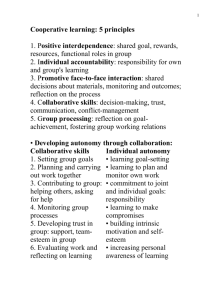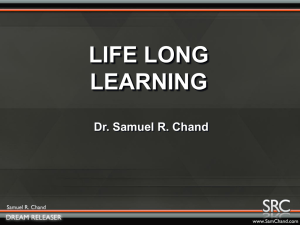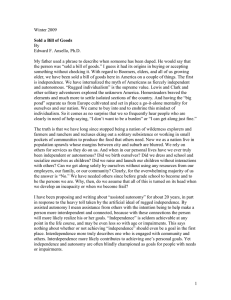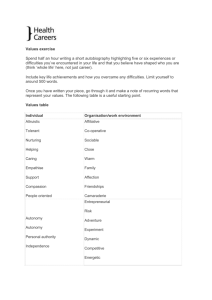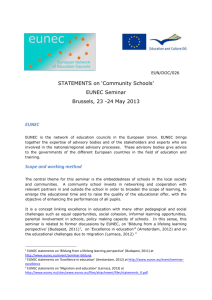By Edward F. Ansello, Ph.D.
advertisement
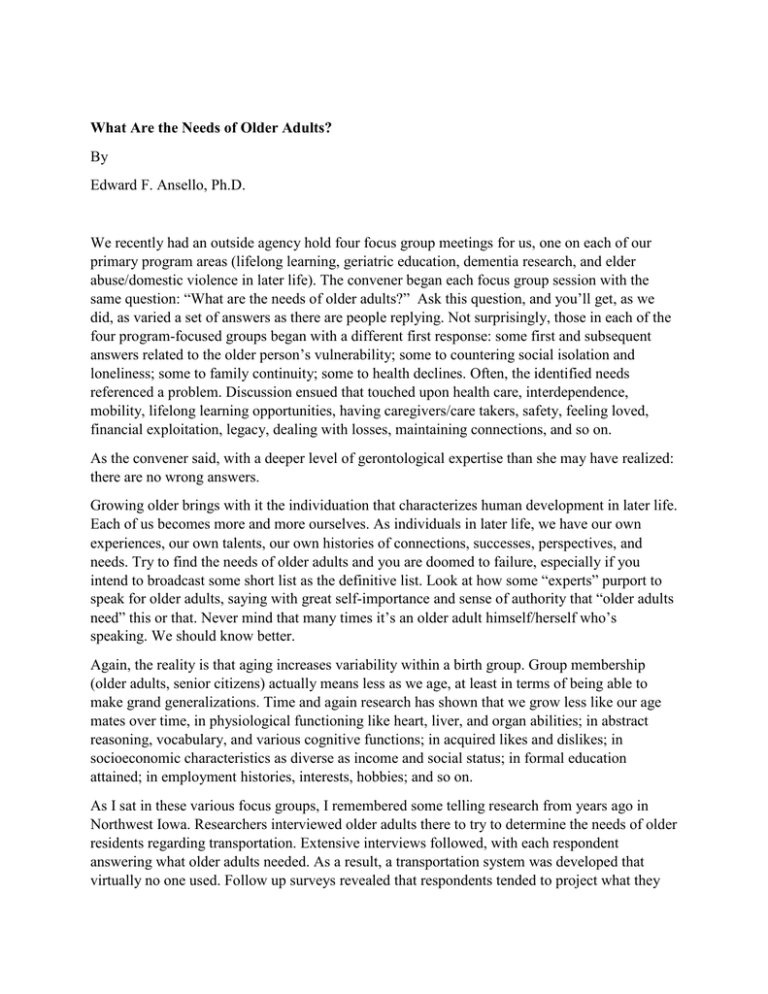
What Are the Needs of Older Adults? By Edward F. Ansello, Ph.D. We recently had an outside agency hold four focus group meetings for us, one on each of our primary program areas (lifelong learning, geriatric education, dementia research, and elder abuse/domestic violence in later life). The convener began each focus group session with the same question: “What are the needs of older adults?” Ask this question, and you’ll get, as we did, as varied a set of answers as there are people replying. Not surprisingly, those in each of the four program-focused groups began with a different first response: some first and subsequent answers related to the older person’s vulnerability; some to countering social isolation and loneliness; some to family continuity; some to health declines. Often, the identified needs referenced a problem. Discussion ensued that touched upon health care, interdependence, mobility, lifelong learning opportunities, having caregivers/care takers, safety, feeling loved, financial exploitation, legacy, dealing with losses, maintaining connections, and so on. As the convener said, with a deeper level of gerontological expertise than she may have realized: there are no wrong answers. Growing older brings with it the individuation that characterizes human development in later life. Each of us becomes more and more ourselves. As individuals in later life, we have our own experiences, our own talents, our own histories of connections, successes, perspectives, and needs. Try to find the needs of older adults and you are doomed to failure, especially if you intend to broadcast some short list as the definitive list. Look at how some “experts” purport to speak for older adults, saying with great self-importance and sense of authority that “older adults need” this or that. Never mind that many times it’s an older adult himself/herself who’s speaking. We should know better. Again, the reality is that aging increases variability within a birth group. Group membership (older adults, senior citizens) actually means less as we age, at least in terms of being able to make grand generalizations. Time and again research has shown that we grow less like our age mates over time, in physiological functioning like heart, liver, and organ abilities; in abstract reasoning, vocabulary, and various cognitive functions; in acquired likes and dislikes; in socioeconomic characteristics as diverse as income and social status; in formal education attained; in employment histories, interests, hobbies; and so on. As I sat in these various focus groups, I remembered some telling research from years ago in Northwest Iowa. Researchers interviewed older adults there to try to determine the needs of older residents regarding transportation. Extensive interviews followed, with each respondent answering what older adults needed. As a result, a transportation system was developed that virtually no one used. Follow up surveys revealed that respondents tended to project what they thought others their age needed, even when they themselves had no need for what they were suggesting. There was a disconnect between self and others. Each person was speaking from his or her acquired perspective. As we grow older, our perspectives are shaped by our individual life histories. Just this past weekend, I heard a famous professor of internal medicine say that “treating geriatric patients is an N of 1 experiment, because of the great variability.” He meant that the number (N) of subjects in the experiment is one, the individual himself, and the outcome of the experiment (his medical treatment) couldn’t be predicted. I’ve been saying this another way for years: “One to the 100th power is still one.” Back in the focus group, I realized that many of the needs that the various focus group members proposed had at least one thing in common: assisted autonomy. Let me explain what this term means. While the group members spoke often of older adults needing to maintain their “independence,” I wonder if any of us were or are truly independent at any point in our lives. Certainly, we’d like to think that we were or we are. But in all likelihood, we were and are interdependent, depending on the assistance of others in our education, upbringing, careers, and relationships to accomplish what we value. “Autonomy” is another thing, like “independence,” that some people champion for themselves and for older adults. But autonomy, the right of a person to make a decision, has at least two characteristics: having choices to make and being able to exercise those choices. In the second part especially, the help of others is often needed. Someone with a mobility challenge can be autonomous if, first, she can choose to go downtown to a nice restaurant and, second, if she has the means of transportation to get there and there are curb cuts and ramps, let’s say, that allow her wheelchair ready access to public sidewalks and the restaurant. Choosing to eat downtown is rather meaningless if others don’t help to make the choice feasible. So, in my mind, mobility, social connections, health declines, lifelong learning, safety, caretakers or caregivers implicitly or explicitly speak to interdependence or assisted autonomy, rather than to independence. Others help us to be mobile, socially connected, healthier, lifelong learners, safe, and taken care of. We can, for sure, be lifelong learners holed up in our homes with books and Internet, or be safe behind triple-bolted doors and windows. But, generally, realizing the best of ourselves has meant and continues to mean that we are engaged or interdependent with others. Assisted autonomy.


